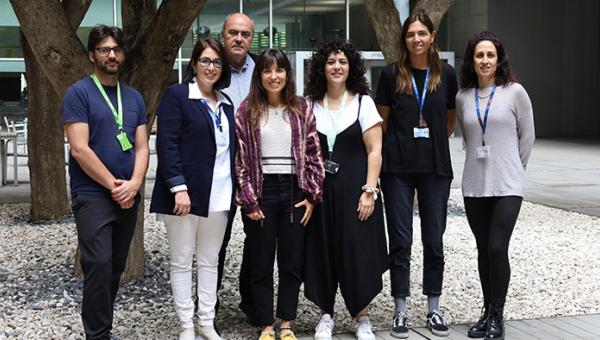News:Research and scientific results
Read the latest news about research and scientific resultats on Alzheimer's disease at the Barcelonaβeta Brain Research Center (BBRC).
We validate centiloid metric as a reliable measure of Alzheimer's-related amyloid plaques
The work, led by the BBRC and published in Alzheimer’s & Dementia, has been pivotal in securing the European Medicines Agency's approval of the Centiloid metric as a valid biomarker for Alzheimer’s disease.
The use of computer-based cognitive training games is validated to assess the evolution of cognitive capacity in people at high risk of Alzheimer's disease
The results are compiled in a study published in iScience, led by the Hospital del Mar Medical Research Institute and the Barcelonaβeta Brain Research Center, center of the Pasqual Maragall Foundation.
We use artificial intelligence to validate a new biomarker of brain aging
The data have been compared with Alzheimer's biomarkers of 2,300 people from four cohorts, including participants without cognitive alterations from the ALFA Study, promoted by the ”la Caixa” Foundation.
The European AMYPAD study demonstrates the efficacy of amyloid PET as a diagnostic tool
Thanks to this neuroimaging technique, widely used in the field of research, deposits of the Alzheimer’s disease associated amyloid-β protein in the brain can be detected and evaluated.
28 European institutions establish new guidelines to prevent Alzheimer's
An international initiative with the participation of the BBRC has published a protocol for the creation of Brain Health Services, intended for the attention of people without cognitive impairment who wish to preserve or improve their memory.
A new research drug against Alzheimer's confirms its positive results during CTAD
The results, published in The New England Journal of Medicine, confirm that lecanemab slows cognitive decline by 27% in patients in the early stages of Alzheimer's disease.
The validity of nine biomarkers for diagnosing Alzheimer's disease in daily clinical practice has been determined
A study led by the Hospital del Mar Medical Research Institute, the Barcelonaβeta Brain Research Centre and the University of Gothenburg has compared the validity of nine biomarkers for the day-to-day diagnosis of Alzheimer's disease in hospital centres.
New data indicate an association between poor sleep quality and an increased risk of developing Alzheimer's
The research, within the European project EPAD, is headed by the Barcelonaβeta Brain Research Center (BBRC), a research center of the Pasqual Maragall Foundation, together with the University of Bristol.
Relationship between symptoms of anxiety and depression during confinement and subjective cognitive decline found
In the research, led by the BBRC, 250 people without cognitive alterations from the ALFA Study, promoted by the ”la Caixa” Foundation, have participated.


















